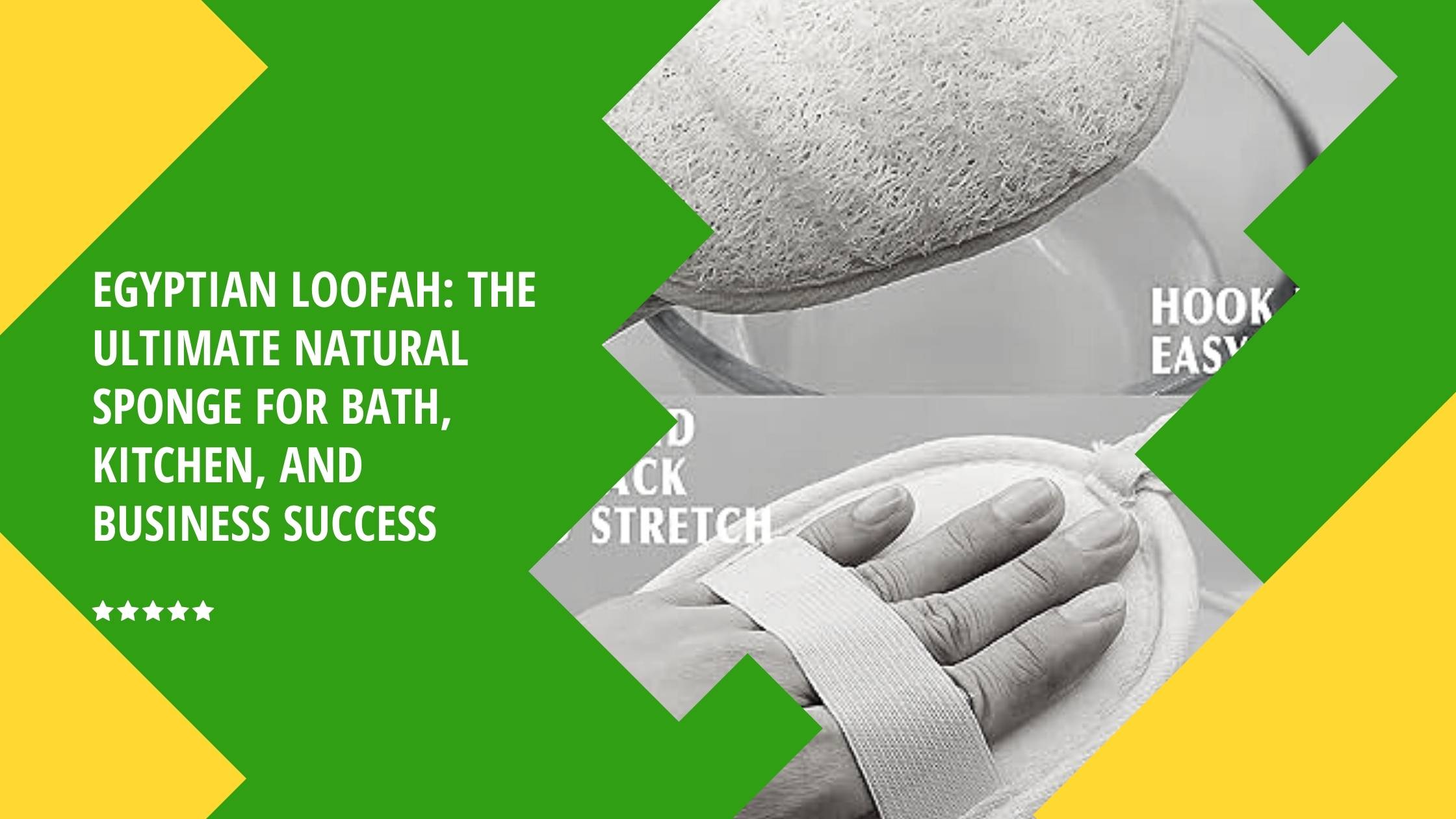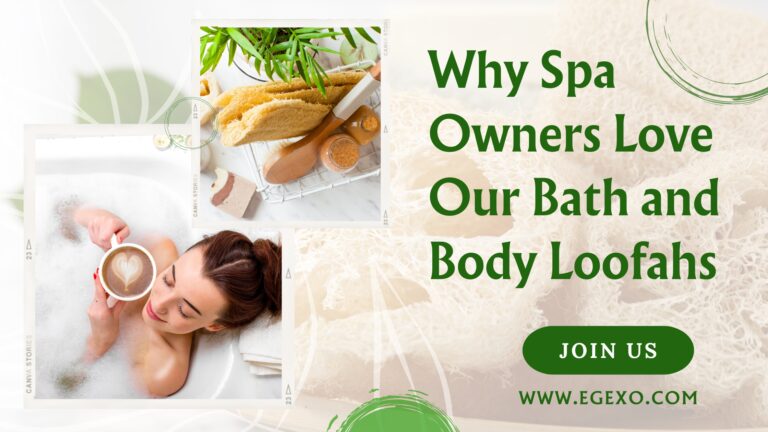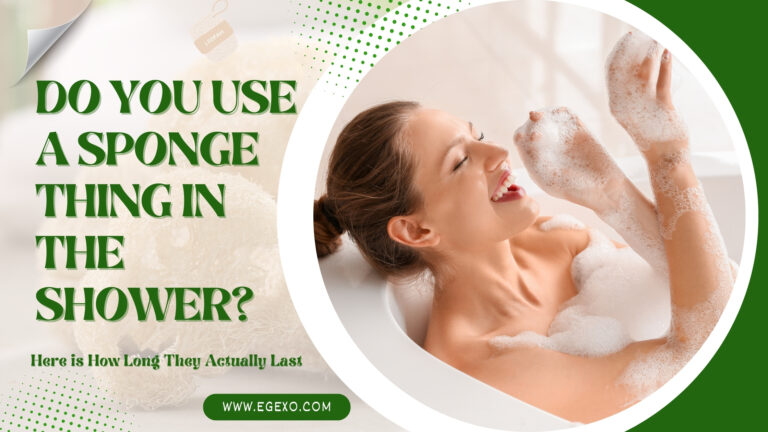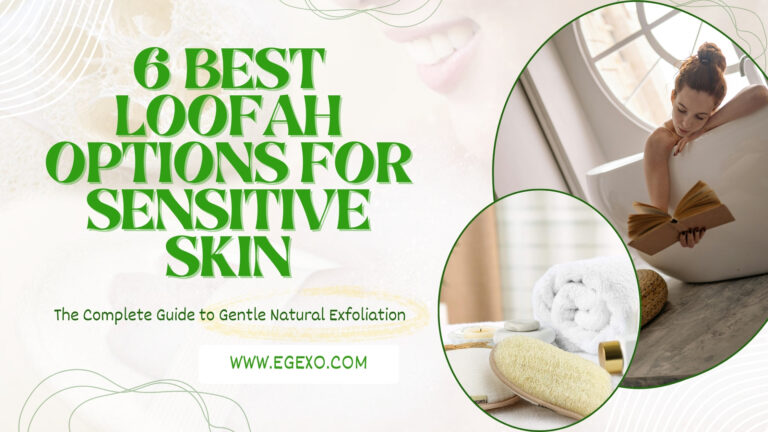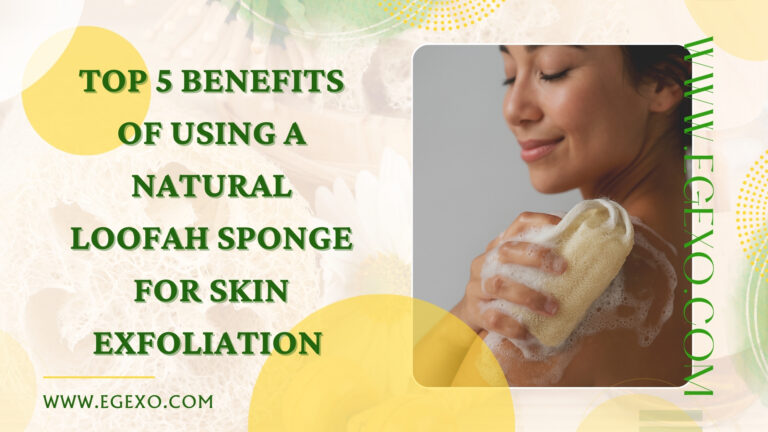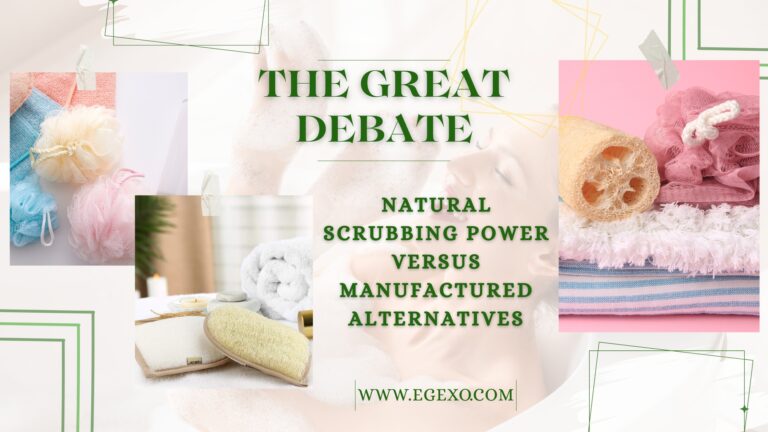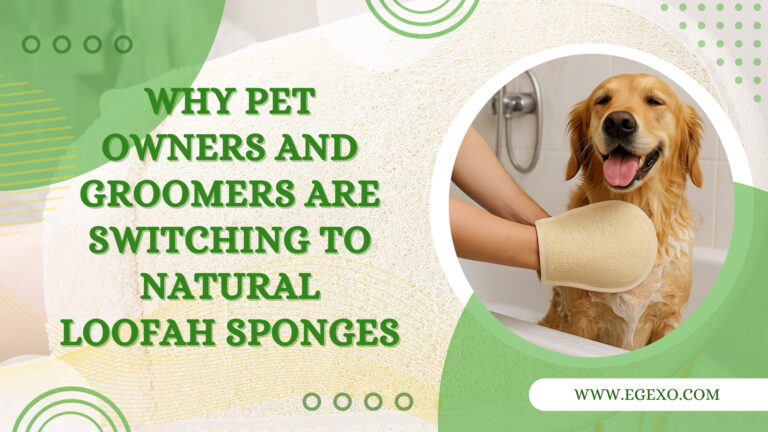Egyptian Loofah: The Ultimate Natural Sponge for Bath, Kitchen, and Business Success
Picture yourself stepping out of a refreshing shower, your skin glowing and smooth after using nature’s perfect exfoliating tool. This experience awaits everyone who discovers the magic of Egyptian loofah, the world’s premium natural sponge that transforms daily routines into luxurious self-care rituals.
Egyptian loofah represents more than just another bath accessory. This remarkable plant-based sponge grows in Egypt’s fertile valleys, where generations of farmers have perfected cultivation techniques that produce the finest quality luffa sponge available worldwide.
What is Egyptian Loofah and Why Does It Matter?
Egyptian loofah comes from the mature fruit of the Luffa cylindrica plant, a member of the cucumber family. Unlike synthetic sponges manufactured in factories, this natural loofah grows directly from the earth, developing its unique fibrous structure through months of careful cultivation.
The magic happens when farmers harvest these gourds at peak maturity. They remove the outer skin, seeds, and pulp, revealing the intricate network of natural fibers that create the perfect exfoliating texture. This process, refined over thousands of years, produces a sustainable alternative to plastic sponges that harm our environment.
Sarah Martinez, a spa owner in California, discovered Egyptian loofah three years ago. “I was searching for eco-friendly alternatives to synthetic scrubbers,” she recalls. “The moment my clients experienced the gentle yet effective exfoliation of authentic Egyptian loofah, they started asking where they could buy their own. It completely transformed my business.”
The Ancient Legacy of Egyptian Loofah
Egypt’s relationship with loofah stretches back to ancient civilizations. Archaeological evidence shows Egyptians using these natural sponges over 4,000 years ago for bathing and cleaning purposes. The legendary Queen Cleopatra incorporated loofah into her beauty regimen, understanding its power to reveal smooth, radiant skin.
Today’s Egyptian farmers continue this legacy, using time-tested methods passed down through generations. The Nile Delta region provides ideal growing conditions: rich alluvial soil, perfect temperature ranges, and consistent water supply create the optimal environment for producing premium quality loofah sponges.
Dr. Mahmoud Hassan, an agricultural researcher at Alexandria University, explains: “Egyptian loofah achieves superior quality because our farmers understand the delicate balance between harvest timing, drying conditions, and processing methods. This knowledge cannot be replicated overnight in other regions.”
Why Choose Egyptian Loofah Over Other Natural Sponges?
Superior Growing Conditions
Egypt’s Mediterranean climate creates perfect conditions for luffa cultivation:
Temperature Control: Consistent 25-30°C temperatures during growing season allow optimal fiber development.
Soil Quality: Nutrient-rich Nile Delta soil provides essential minerals that strengthen fiber structure.
Water Management: Controlled irrigation systems ensure proper moisture levels without oversaturation.
Pest Management: Natural ecosystem balance reduces need for chemical treatments.
Traditional Processing Methods
Egyptian processors follow traditional methods that preserve natural properties:
Sun Drying: Natural solar drying maintains fiber integrity while preventing mold growth.
Hand Selection: Skilled workers sort sponges by size, density, and quality grades.
Minimal Processing: Limited chemical treatments preserve natural antimicrobial properties.
Quality Testing: Each batch undergoes rigorous testing to ensure consistency.
Scientific Advantages
Research demonstrates Egyptian loofah’s superior performance:
Durability Studies: Egyptian loofah lasts 3-6 months compared to 2-4 weeks for synthetic alternatives.
Antibacterial Properties: Natural fibers resist bacterial growth better than artificial materials.
Exfoliation Effectiveness: Unique fiber structure provides optimal dead skin cell removal.
Environmental Impact: Completely biodegradable within 30 days after disposal.
How Does Egyptian Loofah Transform Your Daily Routines?
Bath and Body Applications
Bath and body loofah products revolutionize personal care routines:
Gentle Exfoliation: Natural fibers remove dead skin cells without causing irritation or micro-tears.
Improved Circulation: Massage action stimulates blood flow, promoting healthier skin appearance.
Enhanced Product Absorption: Exfoliated skin absorbs moisturizers and treatments more effectively.
Stress Relief: The tactile experience provides therapeutic benefits similar to professional spa treatments.
Lisa Thompson, a dermatologist in Toronto, notes: “I recommend Egyptian loofah to patients seeking natural exfoliation methods. The fiber structure provides effective dead skin removal without the harshness of synthetic scrubbers.”
Kitchen and Household Cleaning
Kitchen and household loofah products offer eco-friendly cleaning solutions:
Non-Scratch Cleaning: Gentle enough for non-stick cookware yet effective on stubborn stains.
Grease Cutting Power: Natural fibers break down oils and grease without chemical additives.
Vegetable Cleaning: Perfect for cleaning organic produce without leaving residue.
Multiple Uses: Single sponge handles dishes, countertops, and appliances effectively.
Chef Roberto Fernandez from São Paulo shares his experience: “I switched to Egyptian loofah scrubbers in my restaurant kitchen two years ago. They clean better than synthetic sponges and align with our commitment to sustainable practices.”
Pet and Spa Grooming
Pet and spa grooming applications expand beyond human use:
Pet Bathing: Gentle texture safely removes dirt and loose fur from sensitive pet skin.
Professional Spas: Therapists prefer natural loofah for client treatments due to hypoallergenic properties.
Grooming Salons: Durable construction withstands commercial use while maintaining effectiveness.
Therapeutic Applications: Natural texture provides massage benefits for both humans and animals.
What Makes Egyptian Loofah a Smart Business Investment?
Growing Market Demand
Consumer trends favor natural products:
Environmental Awareness: 73% of consumers actively seek sustainable alternatives to plastic products.
Health Consciousness: Growing awareness of chemicals in synthetic products drives natural product sales.
Premium Pricing: Natural products command 20-40% higher prices than synthetic alternatives.
Market Growth: Natural skincare market grows 15% annually, creating expanding opportunities.
Diverse Revenue Streams
Egyptian loofah offers multiple business applications:
Retail Sales: Direct consumer sales through online platforms and physical stores.
Wholesale Distribution: Supply retailers, spas, and hospitality businesses with bulk quantities.
Private Labeling: Private labeling services enable custom branding for unique market positioning.
Custom Design: Custom product design services create specialized products for niche markets.
Competitive Advantages
Egyptian loofah provides sustainable competitive benefits:
Quality Consistency: Established supply chains ensure reliable product availability.
Cost Effectiveness: Direct sourcing from Egyptian farms provides competitive pricing.
Brand Differentiation: Natural origin story creates compelling marketing narratives.
Customer Loyalty: Superior performance builds repeat purchase patterns.
How to Identify High-Quality Egyptian Loofah?
Visual Quality Indicators
Premium Egyptian loofah displays specific characteristics:
Color Consistency: Natural cream to light brown coloration without artificial bleaching.
Fiber Integrity: Tightly woven fibers without excessive loose strands or weak spots.
Size Uniformity: Consistent dimensions indicating proper growing and harvesting conditions.
Clean Appearance: Free from seeds, plant debris, or processing residue.
Texture and Performance Tests
Quality assessment through hands-on evaluation:
Firmness Test: Quality loofah maintains shape when compressed but springs back when released.
Water Absorption: Premium sponges absorb 8-10 times their dry weight in water.
Scrubbing Action: Effective exfoliation without scratching or irritating sensitive surfaces.
Durability Check: Quality fibers resist tearing during normal use patterns.
Supplier Reliability Factors
Choose suppliers based on proven performance:
Processing Standards: Quality standards ensure consistent product specifications.
Supply Chain Transparency: Farm to export processes provide traceability and quality assurance.
Customer Service: Responsive communication and problem-solving capabilities.
Certifications: Organic, fair trade, or other relevant certifications validate quality claims.
Which Applications Offer the Best Business Opportunities?
High-Margin Retail Markets
Premium positioning creates profitable opportunities:
Luxury Spas: High-end establishments pay premium prices for superior quality products.
Health Food Stores: Natural product focus aligns with Egyptian loofah positioning.
Department Stores: Beauty sections command premium pricing for natural skincare tools.
Online Marketplaces: Global reach enables access to international markets seeking natural products.
B2B Wholesale Opportunities
Business-to-business sales provide stable revenue:
Hotel Chains: Guest amenity programs require consistent supply of quality products.
Distributors: Regional distributors serve multiple retail outlets with bulk orders.
Manufacturers: Companies creating finished products need reliable raw material suppliers.
Export Markets: International demand creates opportunities for large-volume sales.
Emerging Market Segments
New applications expand market potential:
Pet Industry: Growing pet care market values natural grooming products.
Industrial Cleaning: Eco-friendly cleaning requirements in commercial applications.
Arts and Crafts: Creative applications in decorative and artistic projects.
Medical Applications: Natural properties suit therapeutic and medical cleaning needs.
What Are the Economic Benefits of Egyptian Loofah Business?
Startup Investment Analysis
Initial capital requirements vary by business model:
Online Retail: $3,000-$10,000 covers inventory, website development, and initial marketing.
Physical Store: $15,000-$40,000 includes inventory, rent deposits, and store setup.
Wholesale Distribution: $25,000-$75,000 supports larger inventory and warehouse requirements.
Manufacturing: $50,000-$150,000 enables private labeling and custom product development.
Revenue Projections
Conservative growth estimates for different business models:
Year 1: $30,000-$150,000 depending on scale and market focus.
Year 2: $60,000-$300,000 with established customer relationships.
Year 3: $100,000-$500,000 through market expansion and product line growth.
Break-even typically occurs within 8-14 months based on initial investment size.
Profit Margin Analysis
Egyptian loofah offers attractive profit potential:
Wholesale Costs: $0.40-$1.80 per unit depending on size and processing level.
Retail Pricing: $3.00-$18.00 per unit based on packaging and market positioning.
Gross Margins: 65-85% for most product categories and market segments.
Volume Discounts: Larger orders reduce unit costs and increase profitability.
How to Source Egyptian Loofah Effectively?
Supplier Evaluation Criteria
Successful sourcing requires careful supplier assessment:
Production Capacity: Ability to meet volume requirements during peak seasons.
Quality Control: Systematic processes ensuring consistent product specifications.
Communication Skills: English proficiency and responsive customer service.
Export Experience: Familiarity with international shipping and documentation requirements.
Financial Stability: Established business with reliable payment terms and credit references.
Due Diligence Process
Thorough supplier verification protects business interests:
Factory Visits: On-site inspections reveal actual production capabilities and conditions.
Sample Testing: Multiple product samples demonstrate quality consistency over time.
Reference Checks: Previous customer feedback provides insight into supplier reliability.
Documentation Review: Export licenses, certifications, and compliance records.
Payment Terms: Secure payment methods and reasonable credit terms.
Building Long-Term Relationships
Sustainable partnerships create competitive advantages:
Regular Communication: Frequent contact builds trust and prevents misunderstandings.
Fair Pricing: Reasonable margins for suppliers ensure long-term cooperation.
Volume Commitments: Consistent orders help suppliers plan production and pricing.
Quality Feedback: Constructive input helps suppliers improve products and processes.
Mutual Growth: Partnerships that benefit both parties create stable business relationships.
Frequently Asked Questions About Egyptian Loofah
What makes Egyptian loofah different from loofah grown elsewhere?
Egyptian loofah benefits from unique growing conditions in the Nile Delta region, including optimal climate, nutrient-rich soil, and traditional cultivation methods refined over thousands of years. These factors combine to produce stronger, more durable fibers with superior exfoliating properties compared to loofah grown in other regions.
How long does Egyptian loofah last with regular use?
High-quality Egyptian loofah sponges typically last 3-6 months with proper care and regular use. This durability significantly exceeds synthetic alternatives, which usually deteriorate within 2-4 weeks. The longevity depends on usage frequency, care practices, and initial quality grade.
Is Egyptian loofah safe for sensitive skin?
Egyptian loofah is naturally hypoallergenic and suitable for most skin types, including sensitive skin. The natural fibers provide gentle exfoliation without harsh chemicals found in synthetic alternatives. However, individuals with extremely sensitive skin should start with light pressure and gradually increase as their skin adapts.
How do I properly care for my Egyptian loofah sponge?
Rinse thoroughly after each use, squeeze out excess water, and allow to air dry in a well-ventilated area. Weekly sanitization with diluted vinegar or antimicrobial soap extends lifespan. Replace when fibers become excessively loose or the sponge develops an odor that doesn’t disappear after cleaning.
Can Egyptian loofah be used for purposes other than bathing?
Absolutely. Raw loofah scrubbers serve multiple purposes including kitchen cleaning, pet grooming, household scrubbing, and even industrial applications. The natural fibers are gentle enough for non-stick surfaces yet effective on tough stains and debris.
What profit margins can retailers expect from Egyptian loofah products?
Retailers typically achieve 65-85% gross margins on Egyptian loofah products. Premium packaging, branding, and positioning in natural product sections command higher retail prices while competitive wholesale costs from Egyptian suppliers maintain healthy profitability throughout the supply chain.
How do I verify the authenticity of Egyptian loofah products?
Authentic Egyptian loofah displays specific characteristics including natural cream coloration, consistent fiber density, and proper documentation from Egyptian suppliers. Reputable suppliers provide certificates of origin, quality test results, and transparent information about their farm to export processes.
Are there seasonal considerations for Egyptian loofah supply?
Egyptian loofah harvest occurs primarily between September and December, with peak availability in October and November. Planning purchases during harvest season ensures better pricing and product availability. Established suppliers maintain inventory year-round, but advance planning prevents supply disruptions.
What packaging options work best for different market segments?
Eco-friendly kraft paper packaging appeals to environmentally conscious consumers, while clear plastic displays product quality effectively. Premium gift boxes suit spa and luxury markets, whereas bulk packaging serves wholesale customers. Educational inserts about natural benefits add value across all segments.
How large is the global market for natural loofah products?
The global natural loofah market reaches approximately $180 million annually and grows at 12-15% per year. North America and Europe represent the largest markets, with emerging opportunities in Australia, Brazil, and Asia-Pacific regions as environmental awareness increases.

